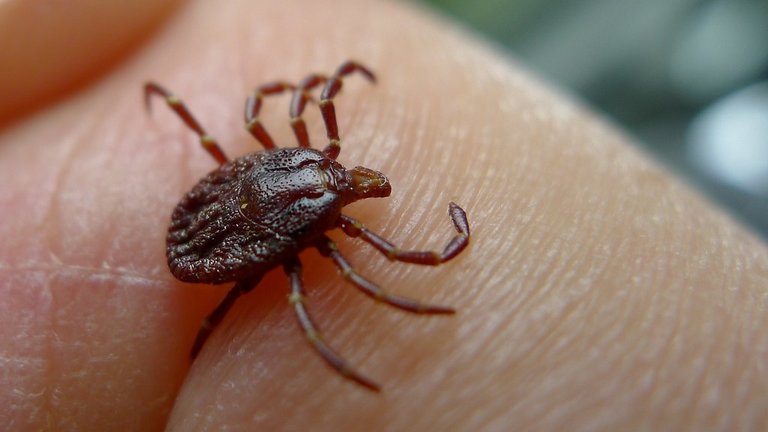Will Isoxazoline Help in Eradicating Tick-Borne Diseases and Malaria in Humans?
For those of us that have dogs or cats, you must be familiar with the fact that ticks biting your dogs or cat as a result of them going out to the field or hanging out with other dogs.
While a lot of people get worried, what we do is give them a pill or injection at the end of the month, and vuala, it looks like the ticks disappear and we do not have to worry about them again for a short period of about a month, two or three. It then looks like the injection or the pill just makes the tick fall off, and then prevent the tick from infecting the pet with lyme disease.
These pet medications primarily contain a class of drugs called Isoxazolines. When a dog or cat ingests or is administered Isoxazolines, it turns their blood into a toxin for ticks, flies, and other insects. When these pesky bugs take a bite, the medication blocks chloride channels in the insects' nerve cells, essentially paralyzing and killing them. The beauty of this mechanism is that Isoxazolines don't bind to vertebrate (including human) GABA receptors, ensuring our pets remain unaffected.
The drug doesn't stop the insect or tick from biting, it actually kills them after they have socked blood from the pet. Since it takes 24 to 48 hours for the bacteria that causes Lyme disease to transmit from the tick to the pet, then the tick is unable to cause disease.
Beyond Lyme disease, there are other tick-borne ailments that warrant our concern. For instance, Alpha-Gal syndrome, a condition that renders humans allergic to red meat, is another potential consequence of tick bites. This begs the question: Can similar tick-repelling pills or injections be developed for humans?
In 2018, researchers said that isoxazolines found in drug brands like Nexgard, and Bravecto could be repurposed for humans theoretically. It was also looked into for eliminating mosquitoes as well. In 2021, a group of researchers also showed that ivermectin and lotilaner can kill lice that affects humans. While this drugs look promising, it is important not to use the one for pets, and we do not have a human version currently.
Several concerns loom large in this pursuit. The safety of such medications in humans is a paramount consideration. Mammals, including humans, possess GABA receptors, and if the drug were to inadvertently bind with these receptors, it could lead to detrimental effects. Moreover, the prospect of making human blood toxic is another pressing concern, as it could potentially harm our vital organs.
Additionally, there have been reports of animals, including pets, experiencing side effects such as seizures and uncontrolled shaking when administered Isoxazolines. Although the incidence rate is low, the U.S. Food and Drug Administration (FDA) continues to endorse the safe use of these pills for pets.
While there is no Isoxazoline medication in shelves currently, there is an Isoxazoline drug which has received approval for phase 2 human clinical trials and on phase 3, and it is believed to help stop the spread of Lyme disease as well as malaria, as it reduces the population of both ticks and mosquitoes.
The world of Isoxazolines offers a glimmer of hope in our battle against tick-borne diseases. While we're not yet equipped with a human version of the pet medications, ongoing research is inching us closer to potential solutions.
Reference
https://www.fda.gov/animal-veterinary/animal-health-literacy/fact-sheet-pet-owners-and-veterinarians-about-potential-adverse-events-associated-isoxazoline-flea
https://pubmed.ncbi.nlm.nih.gov/29967151/
https://time.com/5325775/zika-malaria-pet-medicine/
https://www.ncbi.nlm.nih.gov/pmc/articles/PMC7891696/
https://www.pnas.org/doi/10.1073/pnas.1801338115
https://pubmed.ncbi.nlm.nih.gov/19944072/
https://link.springer.com/article/10.1007/s00436-023-07945-w
https://www.ncbi.nlm.nih.gov/pmc/articles/PMC7738705/
https://bmcvetres.biomedcentral.com/articles/10.1186/s12917-019-2016-4
https://www.nbcnews.com/health/health-news/flea-tick-pills-can-cause-nerve-reactions-pets-fda-warns-n911536
https://pubmed.ncbi.nlm.nih.gov/19365151/
https://www.ncbi.nlm.nih.gov/pmc/articles/PMC8481060/
https://www.aaojournal.org/article/S0161-6420(23)00392-5/fulltext
https://www.msdvetmanual.com/toxicology/insecticide-and-acaricide-organic-toxicity/isoxazoline-toxicosis-in-animals


Thanks for your contribution to the STEMsocial community. Feel free to join us on discord to get to know the rest of us!
Please consider delegating to the @stemsocial account (85% of the curation rewards are returned).
Thanks for including @stemsocial as a beneficiary, which gives you stronger support.
I'm a practicing doctor. I usually use Ivermectin on patients with Scabies finestations. It is very effective. I also use Gabapentin for idiopathic paresthesia. I think Ivermectin's use in scabies is not approved but is effective